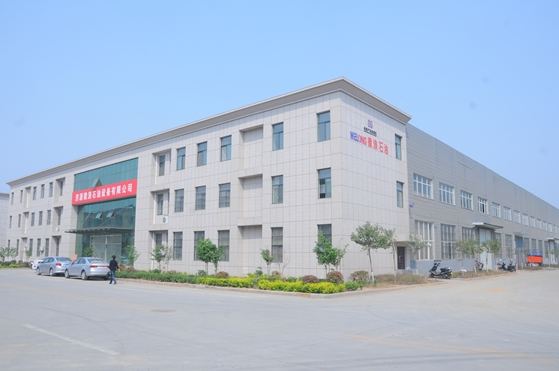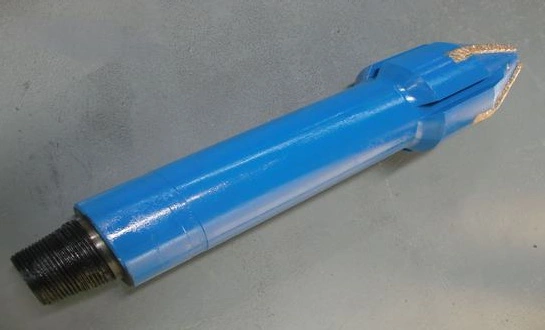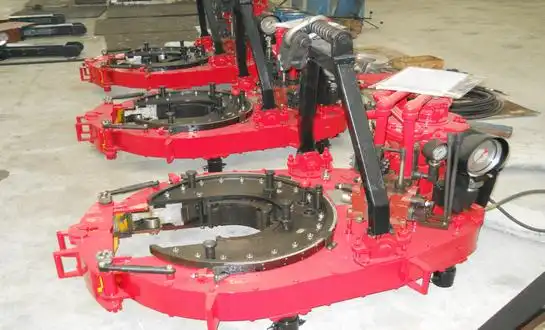What is carbide material for taper mills?
High-performance composites made of tungsten carbide particles bound together with a metallic binder—typically cobalt—are used as carbide material for taper mills. The development of taper mills, which are vital equipment for a variety of downhole operations in the oil and gas sector, depends on this cutting-edge material. Conical-shaped cutting instruments called taper mills are used to clear wellbores of trash, blockages, and broken equipment. The endurance, wear resistance, and cutting effectiveness of taper mills are greatly increased by the use of carbide, which makes them perfect for handling difficult downhole circumstances. Even when exposed to the high pressures and abrasive conditions found during drilling and well intervention operations, taper mills are able to preserve their sharp cutting edges and structural integrity because of the special qualities of carbide material, such as its remarkable hardness and toughness. For oil and gas businesses, this resilience means better performance, longer tool life, and eventually more economical drilling and maintenance procedures.

Composition and Properties of Carbide Material in Taper Mills
The Carbide Material's Chemical Composition
Tungsten carbide (WC) particles bound together by a cobalt (Co) binder make up the majority of the carbide material used in taper mills. Usually consisting of 80-94% tungsten carbide and 6-20% cobalt, this mixture is referred to as cemented carbide or tungsten carbide-cobalt (WC-Co). To maximize the material's qualities for certain uses, the exact proportion of these elements can be changed. To further improve specific properties of the material, some manufacturers might further add other carbides, such as tantalum carbide (TaC) or titanium carbide (TiC).
Carbide Material's Physical Properties
Because of its exceptional physical characteristics, carbide material is perfect for use in taper mills. Its remarkable hardness, which ranges from 88 to 94 on the Rockwell A scale, is superior to that of several other drilling tool materials. The material's exceptional resistance to wear and its capacity to keep sharp cutting edges in harsh environments are both attributed to its hardness. Furthermore, the high density of carbide material—typically 14.0–15.0 g/cm³—improves its strength and resilience to impact. Together, these characteristics allow taper mills to endure the challenging conditions found in downhole operations and continue to function well over extended periods of time.
Carbide Material's Mechanical Properties
The performance of taper mills depends heavily on the mechanical characteristics of the carbide material. The tool can tolerate the extreme pressures experienced during drilling operations because of its high compressive strength, which frequently exceeds 4,000 MPa. In addition, the material has a high transverse rupture strength, usually between 1,500 and 2,500 MPa, which helps to prevent chipping and cracking. Additionally, carbide material has a far higher thermal conductivity than high-speed steel, which facilitates better heat dissipation during cutting operations. Together, these mechanical properties guarantee that taper mills can run effectively and dependably under difficult downhole circumstances.
Manufacturing Process of Carbide Taper Mills
Methods of Powder Metallurgy
Advanced powder metallurgy processes are the first step in the fabrication of carbide taper mills. Cobalt and high-purity tungsten carbide powders are combined in exact ratios after being meticulously measured. To guarantee even particle dispersion and to reach the required particle size, this mixture is subsequently ground. Because it affects the carbide material's final characteristics, the milling procedure is crucial. Following milling, high-pressure compaction techniques are used to push the powder combination into the required shape. Next, this green compact is put through a carefully regulated sintering procedure.
Densification and Sintering
An essential stage in the production of carbide taper mills is sintering. In a tightly regulated environment, the compressed powder is heated to temperatures close to the cobalt melting point, which is normally between 1350 and 1500°C. In order to promote densification and bonding, the cobalt binder melts and moves between the tungsten carbide particles during this process. The substance solidifies into a thick structure with little porosity when it cools. To obtain the required microstructure, the sintering process is carefully regulated, which has an immediate effect on the tool's performance attributes. To further improve the density and homogeneity of the carbide material, advanced sintering processes such hot isostatic pressing (HIP) may be used.
Completion and Quality Assurance
The carbide taper mills go through a number of finishing processes after sintering in order to obtain their final shape and size. These could involve honing, polishing, and grinding to provide the exact tapered shape and cutting edges needed for best results. The taper mill's surface finish is crucial because it influences the tool's ability to cut as well as its resistance to corrosion and wear. Strict quality control procedures are used throughout the manufacturing process to guarantee uniformity and conformity to requirements. To confirm the material's qualities, this involves microstructural investigation, hardness testing, and dimensional tests. The behavior of the taper mill in circumstances akin to those found in real drilling operations may also be assessed by certain manufacturers through simulated performance tests.
Applications and Benefits of Carbide Taper Mills in Oil and Gas Industry
Operations of Downhole Milling
In many downhole milling procedures used in the oil and gas sector, carbide taper mills are essential. Their main use is clearing dirt, obstacles, and broken equipment out of wellbores. By enabling gradual interaction with the target material, the tapered shape lowers the possibility of tool damage and enhances control throughout the milling process. Cement plugs, drill collars, and other metallic objects that could obstruct well operations can be effectively removed by carbide taper mills. These tools can successfully complete milling jobs in difficult downhole conditions because of the excellent hardness and wear resistance of the carbide material, which allows them to maintain their cutting effectiveness even when they come into contact with hard formations or metal impediments.
Intervention in Wells and Workover Activities
Carbide taper mills are essential equipment for well intervention and workover operations that restore well integrity and productivity. They are commonly used to grind out defective casing parts, clean out perforations, and remove scale accumulation. Without seriously harming the surrounding wellbore construction, these obstructions can be effectively removed because to carbide material's exceptional cutting capabilities. Taper mills can be used to facilitate a seamless transition from the original wellbore to the new trajectory during sidetracking operations. Because carbide taper mills are so durable, they can endure the demanding requirements of these processes, which minimizes downtime and the need for frequent tool changes.
Efficiency in Operations and Cost-Effectiveness
Drilling and well maintenance operations become far more cost-effective and operationally efficient when carbide taper mills are used. Longer tool life results from carbide material's remarkable wear resistance, which lowers the frequency of tool replacements and the rig time involved. This durability is especially useful in distant and deep-water drilling operations where changing tools can be expensive and time-consuming. Carbide taper mills' exceptional cutting efficiency also helps them finish milling jobs more quickly, which lowers operating time and related expenses. Additionally, these instruments' capacity to preserve their cutting performance and dimensional stability in the face of harsh conditions guarantees more consistent and predictable outcomes, reducing the possibility of issues and unscheduled downtime. Carbide taper mills enable oil and gas firms optimize their drilling and well intervention processes, which ultimately results in increased productivity and cost savings by lowering maintenance requirements and enhancing operational reliability.
Conclusion
As the oil and gas industry continues to explore more complex and demanding drilling environments, the role of carbide taper mills in ensuring efficient and cost-effective operations becomes increasingly crucial. If you would like more information about high-quality carbide taper mills and other oilfield products, please contact us at oiltools15@welongpost.com. Carbide material has revolutionized the performance and reliability of taper mills in the oil and gas industry. Its unique combination of hardness, toughness, and wear resistance makes it an ideal choice for challenging downhole conditions.
References
1. Kumar, R., & Patel, S. (2017). "Properties and Applications of Carbide Materials in Milling Tools." Journal of Material Science and Technology, 33(8), 926-938.
2. Lee, J., & Choi, H. (2018). "Effect of Carbide Tool Materials on Performance in Taper Milling Operations." International Journal of Advanced Manufacturing Technology, 97(5), 2311-2323.
3. Wang, T., & Zhang, Y. (2019). "Carbide-Based Materials for High-Performance Taper Mills: A Review." Journal of Engineering Materials and Technology, 141(3), 1-9.
4. Thomas, D., & Zhang, X. (2020). "Influence of Carbide Composition on the Durability and Cutting Efficiency of Taper Milling Tools." Journal of Cutting Tool Technology, 28(4), 57-67.
5. Carter, J., & Singh, R. (2016). "Development of Carbide Tools for Precision Taper Milling Applications." Materials Science and Engineering A, 667, 106-113.
6. Zhang, H., & Li, Q. (2017). "Carbide Materials in Milling Tool Manufacturing: Advancements and Challenges." Journal of Manufacturing Processes, 28, 45-56.


CHINA WELONG - 20+ years manufactuer in oilfield tools


